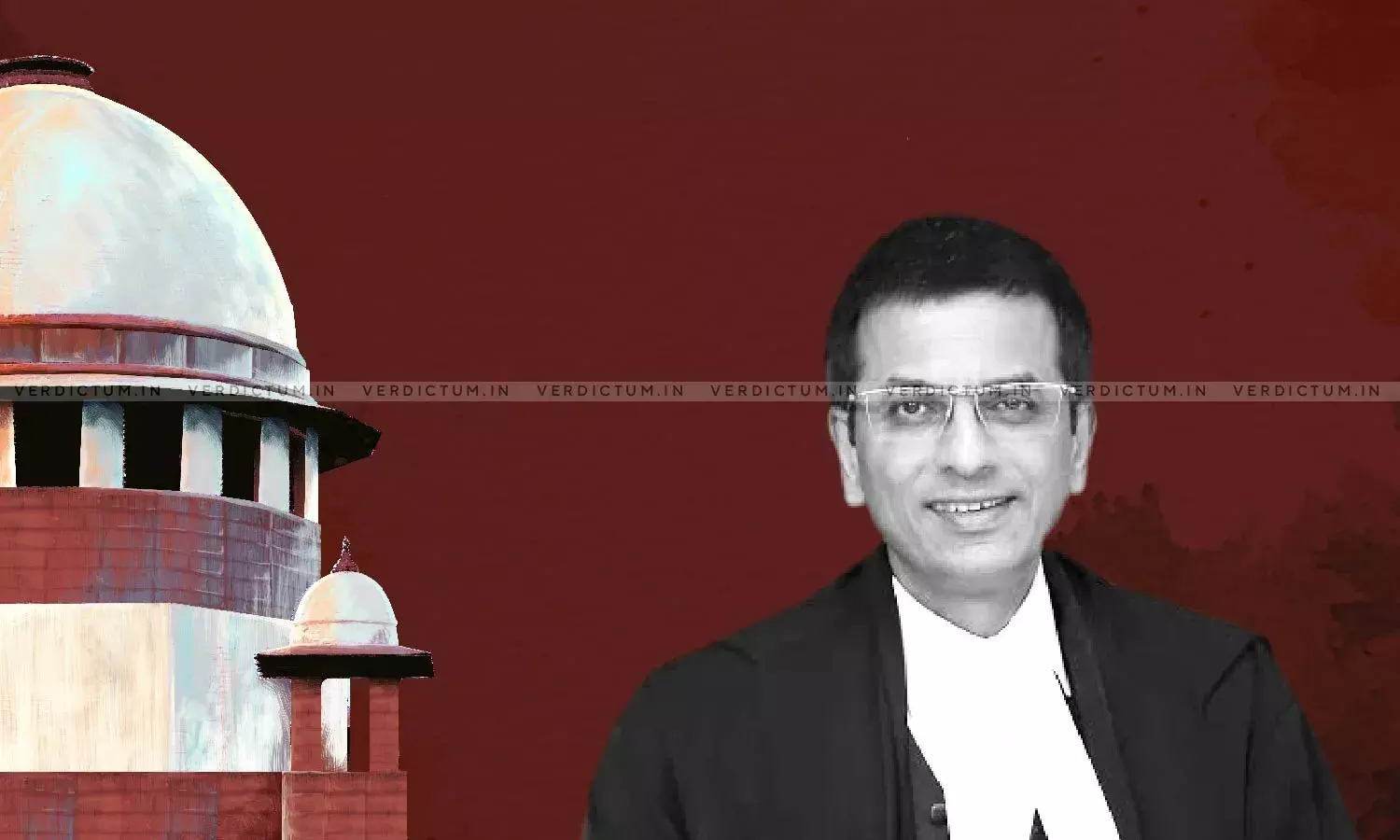Column| Challenges And Opportunities Before The 50th Chief Justice Of India
Hon'ble Mr. Justice D.Y. Chandrachud will assume the office of the Chief Justice of India (CJI) on November 9 2022. He will have a tenure of two years as the CJI, which is fairly long. In these two years, he will have to deal with some of the pressing issues faced by the Indian Judiciary, as summarised in this write-up.
Huge pendency of cases across the board:
It is a known fact that there is huge pendency of cases in all courts. As per the figures available from the official website ecourts.gov.in, in 39 High Courtsestablishments, there are 5.95 Million cases pending and in 3429 District and Taluka courts there are 42.71 Million cases pending as on today.
The normal reaction to this would be that the high number of vacancies in various courts is responsible for the huge pendency of cases. However, in my opinion, the following illustrative reasons are more responsible for this age-old problem than the vacancies of judges.
a) Vacation system in the courts:
Apart from regular holidays, the courts in India have seven to eight weeks' vacation every year. This system either should be abolished or reduced by at least 50%.
It is amazing to note that the vacation mood sets in one or two weeks prior, which has a crippling effect on the functioning of the courts. Such colossal waste of time has to stop, if we want to get rid of the huge pendency.
b) Poor or no system for Appraisal of the performance of judges:
There is no mechanism for monitoring a judge's performance. It is totally a grey area. There is no fear of losing the job unlike in other government departments. In the lower / district judiciary, there is a trend that judges do not hear the matters so that they do not have to pass orders/ judgments.
Concrete steps need to be taken to make judges accountable. It is high time that mediocrity is replaced by meritocracy in our judiciary.
Transfer of judges done without reviewing pendency of their judicial work:
Invariably judges are transferred without taking into account pending judicial work left by them. Many times, it is observed that a judge whose transfer is due, either does not hear the arguments or if he hears the matter, he will not pass final orders/ judgments. As a result, when the new judge takes over, the Advocates have to get the matters heard afresh. Due to this, the matters are dragged on and on. There should be a system in place to ensure that the transferee judges do not leave pending/part-heard matters.
Adjournment culture:
The infamous adjournment culture of our judiciary has to be ended. There are many cases pending, for non-prosecution by the litigants. There should be a system of imposing heavy costs on such litigants/ lawyers, who are not serious about conducting the cases lodged by them. In High Courts also, many petitions are admitted but how many of them are heard finally and disposed off?
Frivolous & vexatious litigations:
There are many frivolous and vexatious litigations/ PILs etc. lodged in various courts. Although, of late, the courts impose costs, still, the ratio is much less than desired. Abuse of legal process/ courts must be viewed seriously and courts should not be made instruments to settle personal scores / hidden agenda of litigants.
Need to introduce reforms in system of Judicial Appointments:
The Court innovated the apparatus and apparition of the collegium wresting to itself the power of appointments and transfers. This is clearly opposed to the intent of the Constitution. The present system of collegium (i.e. Judges appointing judges) is a stark disaster and an illegitimate judicial creation. Hence it should be scrapped at the earliest.
The Supreme Court has been tirelessly advocating bringing transparency in appointments of other institutions of our country. Then, why should the judiciary be spared from such pathbreaking measures?
If we intend to bring credibility and efficiency in the judiciary, these are some of the important and much-needed measures.
Upgradation of infrastructure of Courts ~ Training of Judicial Officers:
a) Although many effective measures are taken to upgrade the infrastructure of courts across the country, there is still much to do. It is astonishing that in India, there are still many courts in remote areas, where basic necessities of water, toilets etc. are not provided.
b) Mr. Justice Chandrachud, as Chairman of E-Committee/ E-Courts, has done remarkable work to digitalise court infrastructure, however, there are still many judges at the district level, who are not interested in adapting themselves to the need of the hour. Not only that the status of cases are not updated, the orders passed by the courts are also not uploaded.
c)The Court staff (including lower judicial officers) need exhaustive training in this regard so as to make our courts effectively digital.
The above are some of the challenges which need to be addressed with a definite plan and in a time-bound manner, to improve the justice delivery system. In my view, the CJI designate has a very good opportunity to chart a course of action to make the Indian Judiciary world-class, especially when the Indian Judiciary will celebrate its 75th year in 2025.
The author is an Advocate practicing before the Bombay High Court
[The opinions expressed in this article are those of the author. Verdictum does not assume any responsibility or liability for the contents of the article.]












